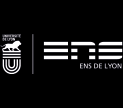RDST, n°10/2014
Énergies
Energies The aim of this issue is to inventory the current trend of research, and to compare the meanings linked to this term 'energy' in the scientific disciplinary fields or in the ‘education to’ that use it, together with the didactical approaches.
RDST, n°13/2016
Recherches sur l'école et ses partenaires scientifiques
Researches on School and its scientific partners This document « Researches on School and its scientific partners » enables us to query the partnership practices and the ways in which educationalists problematize and invest this field. French education policy in France encourages teachers to develop partnerships with museums and centres for scientific culture, associations, universities, ...
RDST, n°15/2017
Connaissances professionnelles didactiques pour l'enseignement des sciences et des technologies
Didactical professional knowledge for sciences and technologies education The aim, in this issue, is to make an inventory of French studies that deal with didactical knowledge involved by teachers at work when teaching sciences or technologies. The purpose is to describe this knowledge, characterize its development or promote it.
RDST, n°20/2019
Les résultats des recherches en didactique des sciences et des technologies : quelle validité et à quelles conditions ?
Research results in science and technology didactics: which validity and under which conditions? RDST, n°21/2020
Contenus et curricula
Contents and curricula Curricular issues hold a paradoxical position within research in science and technology didactics.The articles in this special issue offer an overview, and aim to identify some characteristics, of didactic questions from various curricular perspectives.
Repères, n°61/2020
Construire la compétence lexicale : quelles avancées vers le réemploi aujourd'hui ?
Build the lexical competence: what progress towards re-employment today? Repères 61, "Building lexical competence. What progress towards re-use today?", presents articles which question the teaching-learning of the lexicon, from nursery school to university, in first, second or foreign language, in view of the fundamental question of re-use for the didactics of lexicon.
Repères, n°62/2020
La progression dans la lecture des textes littéraires
The progression in teaching and learning to read literary texts The nine contributions gathered here focus on the progression of teaching and learning to read literary texts by questioning the methodological choices relating to this object of study and reporting new research results. Particular attention is paid to the comparative, and even international, approach to effective classroom practices.
Repères, n°64/2021
Lire des œuvres en extraits, quels enjeux pour l'enseignement de la littérature ?
Reading works of literature in the form of extracts, what are the implications for literature teaching? Based on the observation that extracts have implications for the teaching of literature and the selection of works for study in schools, this dossier seeks to ascertain the relationships which are established between a work and extracts from it. These different articles, we discover how extracts reveal the challenges involved in teaching literature
Repères, n°65/2022
Élèves plurilingues en classes ordinaires : outils et questions pour la didactique du français
Multilingual students in mainstream classes: tools and issues for the teaching of the French language This issue focuses on the teaching of the French Language, the teaching of languages and sociolinguistics. It brings together current research on multilingualism in so-called monolingual classes, classroom practices and related training. The implications for inclusion and effective teaching are huge.
Repères, n°66/2022-2
Commentaire, commentaires
Literary commentary, litterary commentaries This dossier examines text commentary, defined either in a broad sense as a kind of metatextual discourse, which brings together different forms of writing about reading, or as a specifically standardised examination test, in different contexts. It considers what kind of reader these various exercises are likely to create.
|
Catalog
- Philosophy
- Literature
- Linguistics
- Sciences
- History, Geography, Sociology
- History of books
- History of Science
- Education
- Arts
- Economics
- Political Science
- Sources

